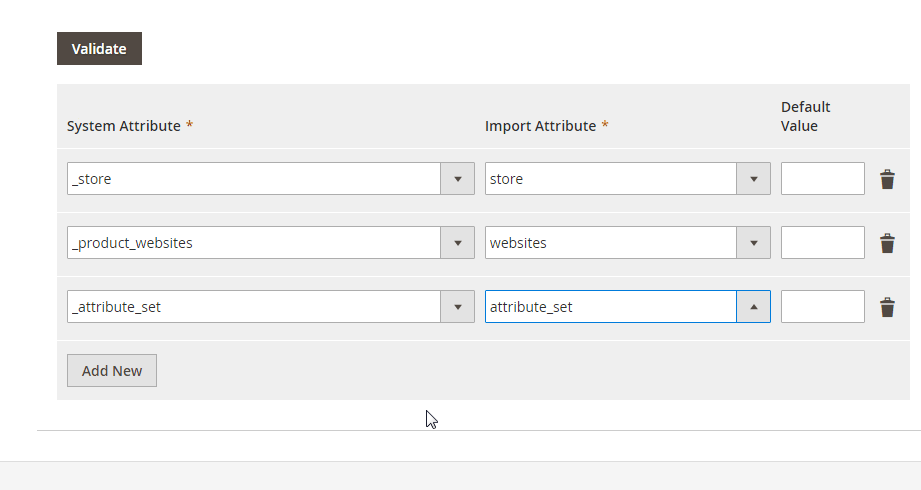Magento 2 Webgains Integration

Webgains is another affiliate marketing network that provides e-commerce merchants with tools designed to increase business growth and stability. As a Magento 2 owner, you can freely connect your store to the platform. And below, we shed light on how to achieve this goal. The following article discusses core platform’s features as well as provides a Magento 2 Webgains connector.

Why is Webgains better than most other affiliate marketing networks? Because it operates worldwide. The company provides its services in 230 countries generating sales across the globe. Its system includes more than 250k publishers, and it already works with 1.8k advertisers. A considerable number of partners, isn’t it?
Webgains works hard to provide brands with the most relevant publishers and as a result – the broad audience of potential buyers. The platform uses the latest technologies to make their services as precise as possible. It carefully selects publishers to offer only the best opportunities to brands. Thus, as a Magento 2 merchant, you don’t have to be afraid of an inappropriate network with bad results.

Webgains has 6 offices in different countries so that you can contact the company directly with the corresponding regional departments. And note that it is a part of the ad pepper media group with a vast experience that includes more than a dozen of years in the market. Therefore, Webgains is an excellent and reliable partner proven by the community. If you think that the Magento 2 Webgains integration is worth your attention, you’ve come to the right place. Below, we shed light on how to choose a Magento 2 Webgains connector.
Selecting Magento 2 Webgains Connector
The Magento ecosystem offers lots of various extensions including all possible connectors. Since the variety of modules is high, it is hard to select a solution that satisfies all your needs. Especially if you don’t know all the pitfalls. And we are here to show you all possible drawbacks and issues you may face.
The first significant requirement for every connector is the ability to integrate Magento 2 with multiple other platforms. By using a universal solution instead of a dedicated connector you:
- Save system resources;
- Decrease system load;
- Reduce the probability of conflicts;
- Save your budget;
- Spend less time on routine processes.
With every new integration, the benefits mentioned above become more valuable. Let’s imagine a situation when you want to connect your store to 15 third-party platforms including Webgains. If you use dedicated connectors only, it is necessary to install 15 modules. I case of a single solution, one installation is needed. 15 extensions usually cost more and consume more resources than a single solution. And there is even more important reason to use a fully-featured integrator instead of dedicated connectors. The problem with the second approach is in the lack of platform-specific modules. Even if 10 platforms provide connectors, the other 5 systems don’t do that. As a result, you still need a universal import/export extension to serve all integrations. And the question is why do you need to spend extra money, time, and system resources on 10 integrations if a universal solution must be utilised for the remaining 5 systems?
It’s evident that you can use a universal solution for all third-party platforms. But it must be an import/export extension with rich functionality. Chances are, you are connecting your store not only to price comparison engines and affiliate networks. If you integrate Magento 2 with a marketplace, there is a necessity to create a bidirectional data flow. The same is about drop shipping services. You not only provide the external systems with data but also get the corresponding output back.
And it is great to see a module that fully automates the routine. Two problems must be solved. Firstly, we are talking about frequent updates. Most connectors don’t provide any automation so that you have to run all updates manually.
Secondly, Magento 2 and all external systems have different standards related to the way the data is organised within a file. Therefore, you should modify the default Magento 2 output manually every time the update is planned. The same is about the output of third-party systems: you need to edit data files before importing them to Magento 2. Usually, this process takes much time, and it would be great to automate it.
Considering the requirements above, we’d like to draw your attention to a universal import/export tool called the Improved Import & Export Magento 2 extension. This module is designed to serve all possible connections between your e-commerce store and third-party systems. Furthermore, you will be able to automate all synchronisations with its help. Let’s take a look at module’s core features.
To make every integration possible, the Improved Import & Export extension offers broad support for file formats, connection types, and file sources. In addition to default CSV and standard XML, our module allows moving data feed using the less common but often required TXT format. Besides, you can use Excel files for the same purpose. Another opportunity to create a bridge between Magento 2 and an external system is related to Google Sheets. And the most complicated integrations are possible via API. In case of moving data via files, you can leverage a local or remote server since the Improved Import & Export Magento 2 extension provides full support for FTP/SFTP. An alternative way to the file transfer is represented with the Dropbox support. You can freely use your account on this cloud storage to transfer files between your Magento 2 website and a third-party platform. And if you need the import functionality only, it is possible to get files via a direct URL. Note that the Improved Import & Export Magento 2 module will unzip/untar all archives so that you don’t have to do this work manually.
As for the automation, our extension supports cron allowing you to create any custom schedule of updates or choose one of the predefined intervals. Note that the update can be launched manually before the planned event. Thus, the aforementioned problem with frequent updates is solved, but what about the different standards and file editing?
You no longer have to participate in this time-consuming routine. Our Magento 2 Improved Import & Export extension introduces a user-friendly mapping interface. You create a mapping scheme for every integration, and it is used for all further updates. Furthermore, the module also offers mapping presets which are nothing else but predefined mapping schemes created by our specialists. Thus, it is only necessary to hit a few buttons instead of editing every data file manually every time it is generated.

The Improved Import & Export Magento 2 extension is a real time-saver and the number one integrator! As for the Magento 2 Webgains connector, you can get it as a part of the module for free. Purchase the plugin to get multiple other free connectors. Contact our support team for further details and follow the link below to get the extension and explore all its features:
Download/Buy Firebear Improved Import & Export Magento 2 Extension

